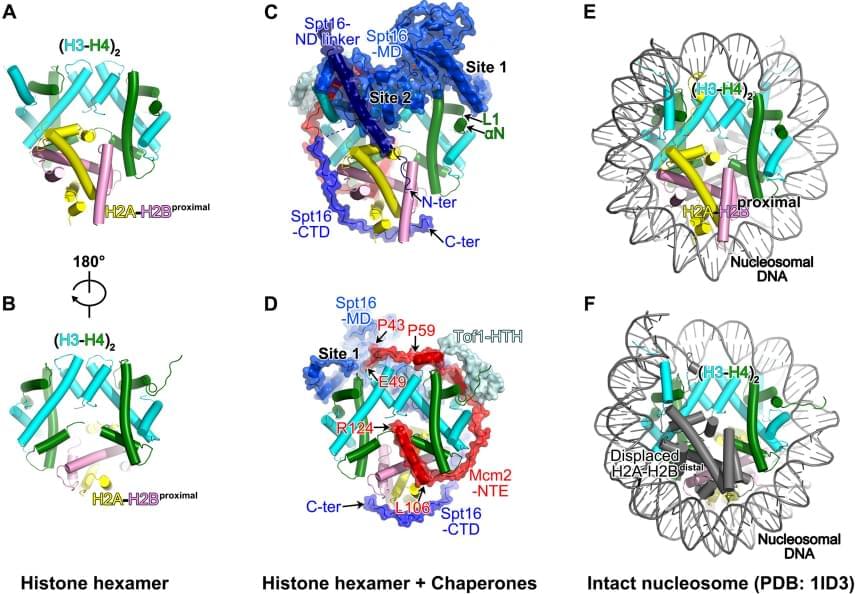A research team led by Professor Yuanliang ZHAI at the School of Biological Sciences, The University of Hong Kong (HKU) collaborating with Professor Ning GAO and Professor Qing LI from Peking University (PKU), as well as Professor Bik-Kwoon TYE from Cornell University, has recently made a significant breakthrough in understanding how the DNA copying machine helps pass on epigenetic information to maintain gene traits at each cell division. Understanding how this coupled mechanism could lead to new treatments for cancer and other epigenetic diseases by targeting specific changes in gene activity. Their findings have recently been published in Nature.
Background of the Research.
Our bodies are composed of many differentiated cell types. Genetic information is stored within our DNA which serves as a blueprint guiding the functions and development of our cells. However, not all parts of our DNA are active at all times. In fact, every cell type in our body contains the same DNA, but only specific portions are active, leading to distinct cellular functions. For example, identical twins share nearly identical genetic material but exhibit variations in physical characteristics, behaviours and disease susceptibility due to the influence of epigenetics. Epigenetics functions as a set of molecular switches that can turn genes on or off without altering the DNA sequence. These switches are influenced by various environmental factors, such as nutrition, stress, lifestyle, and environmental exposures.










Comments are closed.